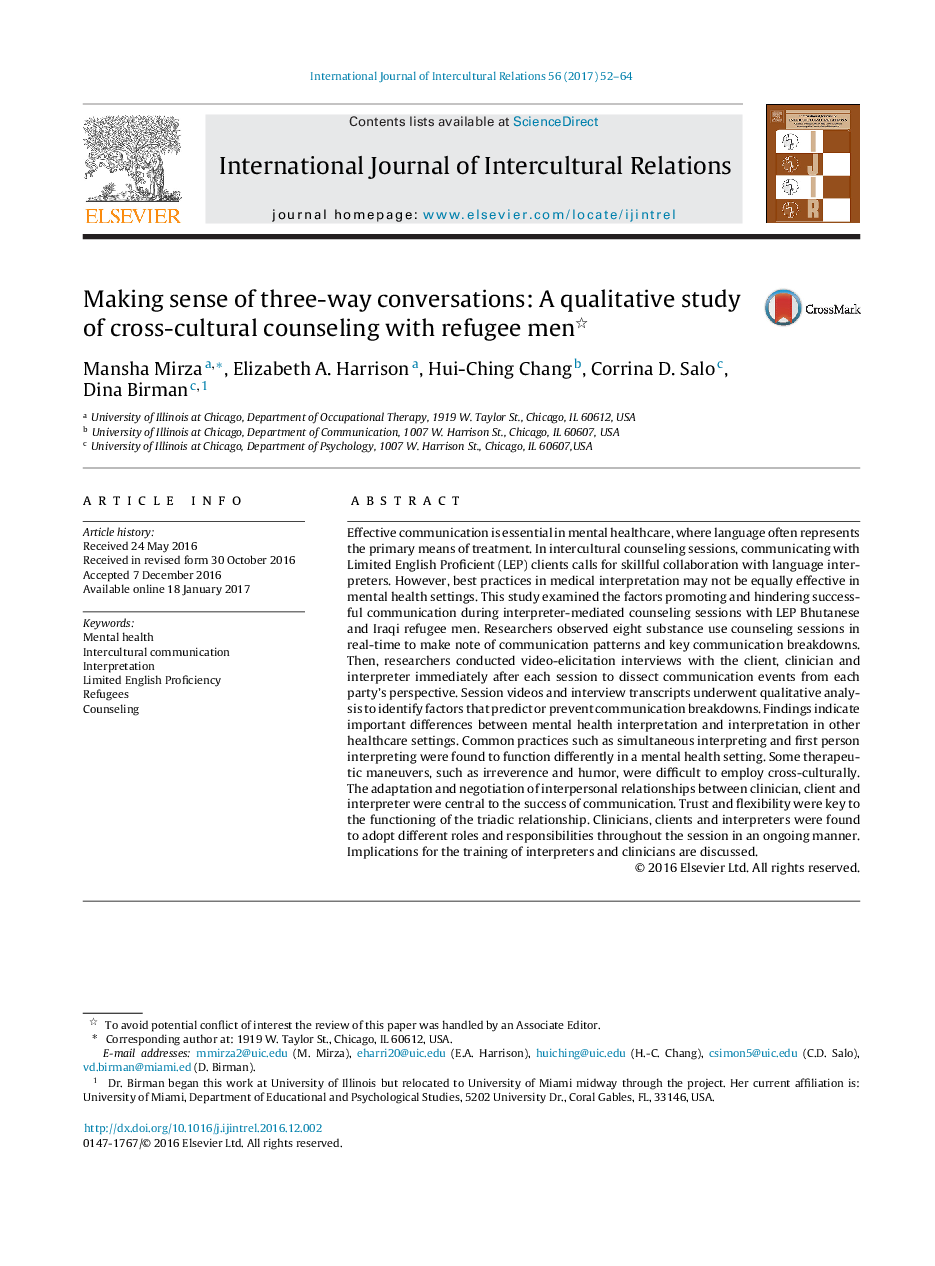| کد مقاله | کد نشریه | سال انتشار | مقاله انگلیسی | نسخه تمام متن |
|---|---|---|---|---|
| 5045577 | 1475734 | 2017 | 13 صفحه PDF | دانلود رایگان |

Effective communication is essential in mental healthcare, where language often represents the primary means of treatment. In intercultural counseling sessions, communicating with Limited English Proficient (LEP) clients calls for skillful collaboration with language interpreters. However, best practices in medical interpretation may not be equally effective in mental health settings. This study examined the factors promoting and hindering successful communication during interpreter-mediated counseling sessions with LEP Bhutanese and Iraqi refugee men. Researchers observed eight substance use counseling sessions in real-time to make note of communication patterns and key communication breakdowns. Then, researchers conducted video-elicitation interviews with the client, clinician and interpreter immediately after each session to dissect communication events from each party's perspective. Session videos and interview transcripts underwent qualitative analysis to identify factors that predict or prevent communication breakdowns. Findings indicate important differences between mental health interpretation and interpretation in other healthcare settings. Common practices such as simultaneous interpreting and first person interpreting were found to function differently in a mental health setting. Some therapeutic maneuvers, such as irreverence and humor, were difficult to employ cross-culturally. The adaptation and negotiation of interpersonal relationships between clinician, client and interpreter were central to the success of communication. Trust and flexibility were key to the functioning of the triadic relationship. Clinicians, clients and interpreters were found to adopt different roles and responsibilities throughout the session in an ongoing manner. Implications for the training of interpreters and clinicians are discussed.
156
Journal: International Journal of Intercultural Relations - Volume 56, January 2017, Pages 52-64